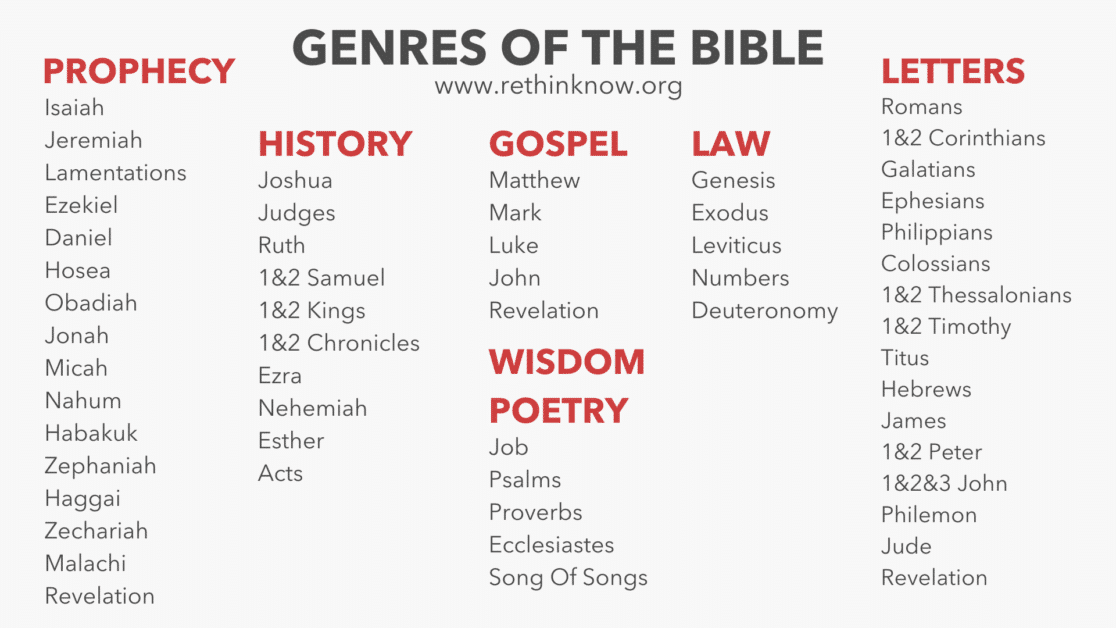If you’ve ever picked up the Bible to read, it can be tricky to figure out what to read. More specifically, where to start reading the Bible.
The Bible is a unique book, it’s unlike any other out there. Therefore it requires a unique approach. And that’s why you should start reading the Bible; it might not be what you think.
So in this blog post I’m going to give you the 6 best places to start reading the Bible and some other tips along the way. If you have ever wondered, “where should I start reading the Bible,” this is the post for you!
Let’s start by looking at why we shouldn’t start in the beginning.
Table of Contents
Why You Shouldn’t Read The Bible From The Beginning
When you pick up a book you start reading from the beginning, it’s how you read books. But the Bible is different, it’s not your average book. And I think it’s best to NOT start in the beginning.
Now, I’m not saying you shouldn’t read the beginning of the Bible. You should. You just shouldn’t start there.
Why?
Well for starters, the Bible isn’t a single book. It’s a collection of 66 literary works written over sixteen centuries by over forty authors. It is a diverse collection with different styles, unique voices, different purposes, and incredible stories.
Just look at this:

Because the Bible is a compilation of books, I think it’s best to start with some of the most central books in this collection. That way you can get a proper framework to engage with the rest of Scripture.
So, where should you start reading the Bible? Let’s take a look.
For more check out: How To Start Reading the Bible (7 practical steps)
Where To Start Reading The Bible
Below is a list of books that I think are the best place to start reading the Bible. If you read these books it will give you a good idea of what God has done for you and how you should respond.
If you haven’t read much of the Bible or are just interested in learning about it, I HIGHLY recommend reading the first two books in this list in order.
1. John
I almost always recommend starting with reading the Gospel of John. I think it’s the best place to start reading the Bible.
John’s Gospel focuses on who Jesus is and what he’s done for us. It’s full of fascinating stories and unique interactions Jesus had with people. John spends much of his time talking about Jesus’ identity and the implication this holds for us today.
It’s a powerful Gospel that I find myself reading through several times a year. And I think it’s the perfect Gospel to start with if you are picking up the Bible for the first time. This book will give you a solid foundation and understanding of the life and work of Jesus.
Now, you could start with any of the Gospels. Matthew, Mark, and Luke will give you a great overview of Jesus’ life from birth to death. But John’s approach is unique, and I think the best one to start with.
The whole Bible centers around Jesus. So before you read any other book of the Bible you should get a solid understanding of who Jesus is.
2. James
While the Gospels tell us about Jesus and what he has done, much of the rest of the New Testament focuses on how followers of Jesus should live in light of what Jesus has done.
While I think the Gospels are the best place to start if you are wondering where to start reading the Bible, James is a great book to read right after.
James highlights the necessity for followers of Jesus to act in accordance with their faith. Being a Christian isn’t something you believe in, it’s a person you follow. James challenges believers to make sure what they believe aligns with how they are living.
This is one of the most practical and challenging books in the Bible. It’s a book that followers of Jesus should continue to go back to time and time again.
3. Proverbs
Proverbs is a book of wisdom for our day to day life. It’s a great place to start to gain practical direction in your life and faith.
The style of writing in the book of Proverbs makes it easy to read and understand. Since there are 30 chapters in the book, many commit to reading a chapter a day for a month.
4. Romans
The Apostle Paul wrote many letters to early churches that are now books of the Bible. These letters center around living in light of the resurrection. Each letter has a unique take based on what the church was facing.
The book of Romans was written to the church in Rome and is one of the most theologically deep letters Paul wrote. It’s a great book to read after you’ve read a Gospel as it will give you a great foundation of how to live in light of Jesus’ resurrection.
5. Psalms
What’s incredible about the Psalms is that there is a Psalm for whatever you are facing. If you are happy, sad, discouraged, hopeless, lost, or anything else, there’s a Psalm for you.
You can read straight through the book of Psalms or you can simply read a few chapters based off what you are feeling. What I think is incredible about this book is that it can help you express your feelings and turn your thoughts to God.
This is a great book to turn to regularly to relate to and find comfort.
6. Choose A Reading Plan
A few times a year I like to pick up a Bible reading plan and follow what they say to read. It can really help you read the Bible in fresh ways and for some people they just need a little more structure in their reading.
YouVersion (Bible App) is one of the most popular apps and is on half a billion phones around the world. This app has thousands of plans to help you know what to read. It will help you keep track and show you where to start reading the Bible. Plus, if you enable notifications it will remind you each day to do your reading.
At first, I was hesitant to read the Bible on my phone. However, after going through several YouVersion reading plans I changed my mind. With the help of YouVersion, my time in God’s Word has grown more and more consistent and rich.
Another resource I HIGHLY recommend is Mark Moore’s books Core 52 and Quest 52. These simple 15 minute daily readings will help you connect with God and understand the Bible better. They are INCREDIBLE. Plus there’s kids/teen versions as well!
You can buy them here:
- Core 52: A Fifteen-Minute Daily Guide to Build Your Bible IQ in a Year
- Quest 52: A Fifteen-Minute-a-Day Yearlong Pursuit of Jesus
- Quest 52 Student Edition: A Fifteen-Minute-a-Day Yearlong Pursuit of Jesus
- Core 52 Family Edition: Build Kids’ Bible Confidence in 10 Minutes a Day: A Daily Devotional
Resources To Help You Read The Bible
To further help you understand and apply God’s Word, using a few tools is always helpful! Below are some of my go-to resources.
You don’t need much to start. Here’s what I recommend:
- A good study Bible (Like this one: Study Bible)
- A journal (Like this one: Journal)
- Something to help with Bible comprehension (like: Core 52)
- Bookmark some good online resources (like Rethink)
If you are looking for a quality resource that’s free, I highly recommend Dr Constables’s Expository Notes. You can easily pull up some quality notes on any passage you are reading. This will give you a much greater understanding of the Bible and the context in which it is written.
If you are looking for some more in-depth resources I would love to help you find them! I have lots of recommendations, just email me at: [email protected]
- The Powerful Proverbs 27:17 Meaning (iron sharpens iron) - March 25, 2024
- What Is The Meaning Of James 1:17? (every good and perfect gift) - March 19, 2024
- Church, Your Hope Is Not In The Election. - March 19, 2024

